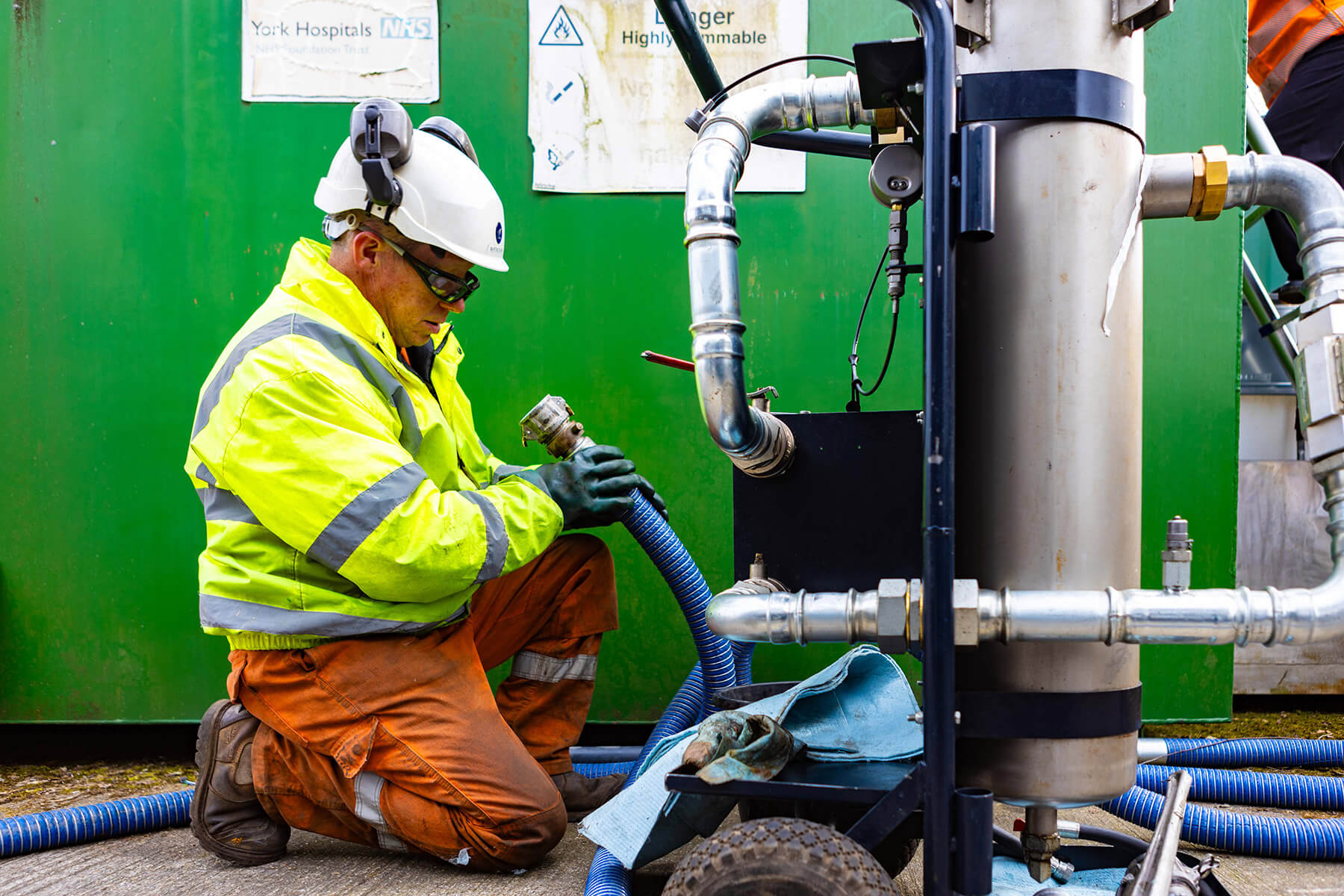The crucial role of fuel polishing in extending the life of your diesel.
Reliable operations start with clean fuel. Contaminated diesel can clog filters, degrade performance and lead to costly breakdowns – especially in critical applications such as backup generators, fleet vehicles and industrial machinery and equipment. Fuel polishing restores fuel quality by removing water, sludge and contaminants – fast. Here’s how the process works and why it’s essential for your bottom line.

What is fuel polishing?
Fuel polishing is a mechanical filtration process that cleans stored diesel fuel by removing water, sediment, sludge and microbial growth, commonly referred to as “diesel bugs”. The process involves circulating the fuel through one or more stages of fine filtration, often including water separators, to restore fuel to a usable and reliable condition.
Why is fuel polishing important?
1. Improves fuel quality for cleaner, more efficient combustion.
Clean fuel burns better. When water, sludge or microbes are present, they can reduce combustion efficiency and increase engine strain. Fuel polishing removes these impurities, helping your machinery deliver smoother, cleaner and more consistent performance. This means fewer emissions, less smoke and maintained power output.
2. Extends the life of your fuel system and fleet.
Contaminants in diesel lead to clogged filters, corroded injectors and degraded fuel lines. Regular fuel polishing protects vital components, extending the life of fuel filters, pumps, injectors and engines. It also extends the usable life of the diesel itself, meaning you don’t need to replace expensive fuel stock prematurely.
3. Reduces downtime and prevents performance issues.
Breakdowns don’t just cost money – they disrupt vital operations. Fuel polishing prevents unexpected failure by removing the root cause of many engine problems. With clean fuel, your site experiences fewer filter changes, smoother engine starts and reduced downtime.
4. A cost-effective alternative to replacement.
Discarding and replacing stored fuel can be prohibitively expensive, especially for bulk storage. Fuel polishing revitalises what you already have, saving money and reducing waste.
5. Supports compliance and reliability in critical applications.
In sectors like healthcare, emergency services and data centres, fuel reliability is non-negotiable. Fuel polishing helps maintain operational readiness and supports compliance with regulations requiring regular fuel maintenance.
How RSM does it different – our expert fuel polishing service.
RSM’s process doesn’t just clean your fuel – it offers complete peace of mind:
- Multi-stage filtration & water separation: Just like the most effective systems, RSM ensures water, particulates and microbes are systematically removed.
- Fuel sampling and testing: RSM analyses fuel before and after polishing to confirm effectiveness and tailor treatment to your needs.
- Mobile and fixed system options: Whether you need a rapid intervention with mobile polishing units or prefer automated, scheduled maintenance, RSM has a solution to suit your operations.
- Minimal disruption: The process occurs without downtime or fuel replacement, keeping your operations humming.
When to schedule fuel polishing.
- Fuel has been stored for several months or longer – degradation starts quickly.
- Frequent filter replacements or sluggish engine performance – clear signs of contamination.
- Preventative maintenance in high-stakes environments, like hospitals or backup power facilities, to avoid catastrophic failures.
Fuel polishing isn’t an optional luxury – it’s a vital maintenance practice that safeguards your operations, prolongs equipment life and cuts costs. Clean fuel underpins everything, from smoother combustion to reduced downtime, extended fuel stability and regulatory compliance.
Ready to keep your fleet and fuel systems performing at their best? Don’t let contaminated fuel slow you down – contact RSM today to schedule your fuel polishing consultation and safeguard your operations from the ground up.